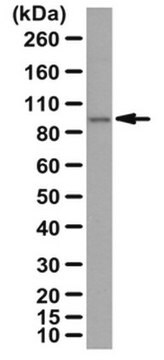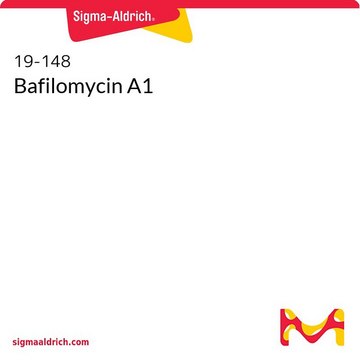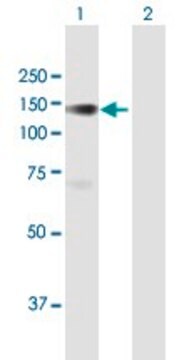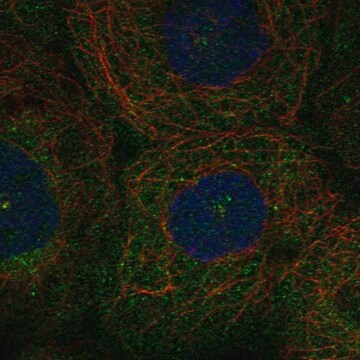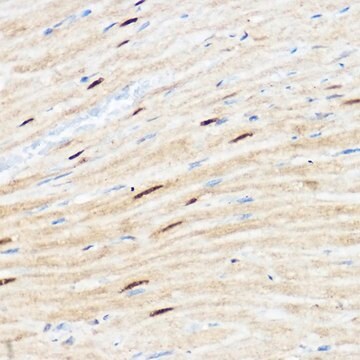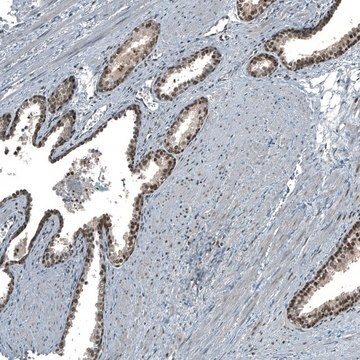MABC544
Anti-PLK-4 Antibody, clone 6H5
clone 6H5, from mouse
Sinonimo/i:
Serine/threonine-protein kinase PLK4, Polo-like kinase 4, PLK-4, Serine/threonine-protein kinase 18, Serine/threonine-protein kinase Sak
About This Item
Prodotti consigliati
Origine biologica
mouse
Livello qualitativo
Forma dell’anticorpo
purified immunoglobulin
Tipo di anticorpo
primary antibodies
Clone
6H5, monoclonal
Reattività contro le specie
human
tecniche
immunocytochemistry: suitable
immunoprecipitation (IP): suitable
western blot: suitable
Isotipo
IgG3κ
N° accesso NCBI
N° accesso UniProt
Condizioni di spedizione
wet ice
modifica post-traduzionali bersaglio
unmodified
Informazioni sul gene
human ... PLK4(10733)
Descrizione generale
Immunogeno
Applicazioni
Immunoprecipitation Analysis: A representative lot immunoprecipitated PLK-4 in HeLa cell lysates cotransfected with Flag-tagged Gcp6 and Myc-tagged Plk-4 (Bahtz, R. et al. (2012). J Cell Sci. 125 (Pt 2): 486-496).
Apoptosis & Cancer
Apoptosis - Additional
Qualità
Western Blotting Analysis: 4.0 µg/mL of this antibody detected PLK-4 in 10 µg of U2Os cell lysate.
Descrizione del bersaglio
Stato fisico
Stoccaggio e stabilità
Risultati analitici
U2Os cell lysate
Altre note
Esclusione di responsabilità
Non trovi il prodotto giusto?
Prova il nostro Motore di ricerca dei prodotti.
Codice della classe di stoccaggio
12 - Non Combustible Liquids
Classe di pericolosità dell'acqua (WGK)
WGK 1
Punto d’infiammabilità (°F)
Not applicable
Punto d’infiammabilità (°C)
Not applicable
Certificati d'analisi (COA)
Cerca il Certificati d'analisi (COA) digitando il numero di lotto/batch corrispondente. I numeri di lotto o di batch sono stampati sull'etichetta dei prodotti dopo la parola ‘Lotto’ o ‘Batch’.
Possiedi già questo prodotto?
I documenti relativi ai prodotti acquistati recentemente sono disponibili nell’Archivio dei documenti.
Il team dei nostri ricercatori vanta grande esperienza in tutte le aree della ricerca quali Life Science, scienza dei materiali, sintesi chimica, cromatografia, discipline analitiche, ecc..
Contatta l'Assistenza Tecnica.